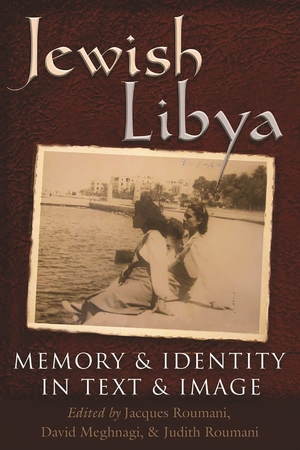"There is really nothing comparable to this collection of essays either in temporal and topical scope or in character as a crossover volume aimed at both a scholarly audience and the educated reading public."—Norman Stillman, Schusterman/Josey Chair of Judaic History Emeritus, University of Oklahoma
"This volume will attract a readership interested in aspects of the cultural heritage of the Libyan Jewish community as well as in the profiles and writings of the contributors. Some of the contributors are established scholars, others well-known cultural activists and translators that have disseminated aspects of their cultural heritage for decades now."—Barbara Spadaro, University of Liverpool
"Jewish Libya is an elegant and compelling anthology which draws on both memory and history to make a unique contribution to our understanding and appreciation of the Jewish cultural heritage of Libya. The book is a fitting tribute to the chief editor, the late Jacques Roumani, who dedicated his life to advancing our knowledge of his homeland."—Ronald Bruce St John, Independent Scholar, author of five books on Libya
"In publishing this book, Syracuse University has compiled from various academic fields and from lay memories the kind of source material that may well find its way into a riveting historical novel, if only there were another James Michener around to take up the challenge."—Donald H. Harrison, San Diego Jewish News
"This is an exceptionally fine example of history of Jews in North Africa."—Association of Jewish Libraries Reviews
"Jewish Libya can be appreciated for its making available to a wider public the memories and personal testimonies of individuals such as David Meghnagi and Harnos Guetta."—Studies in Contemporary Jewry
Description
In June 2017, the Jews of Libya commemorated the jubilee of their complete exodus from this North African land in 1967, which began with a mass migration to Israel in 1948–49. Jews had resided in Libya since Phoenician times, seventeen centuries before their encounter with the Arab conquest in AD 644–646. Their disappearance from Libya, like most other Jewish communities in North Africa and the Middle East, led to their fragmentation across the globe as well as reconstitution in two major centers, Israel and Italy.
Distinctive Libyan Jewish traditions and a broad cultural heritage have survived and prospered in different places in Israel and in Rome, Italy, where Libyan Jews are recognized for their vibrant contribution to Italian Jewry. Nevertheless, with the passage of time, memories fade among the younger generations and multiple identities begin to overshadow those inherited over the centuries. Capturing the essence of Libyan Jewish cultural heritage, this anthology aims to reawaken and preserve the memories of this community. Jewish
Libya collects the work of scholars who explore the community’s history, its literature and dialect, topography and cuisine, and the difficult negotiation of trauma and memory. In shedding new light on this now-fragmented culture and society, this collection commemorates and celebrates vital elements of Libyan Jewish heritage and encourages a lively intergenerational exchange among the many Jews of Libyan origin worldwide.
About the Author
Jacques Roumani was a senior fellow at the Hebrew University’s Truman Institute for the Advancement of Peace and a senior lecturer at Bar-Ilan University and the University of Maryland.
David Meghnagi is full member of the International Psychoanalytical Association, chair of clinical psychology, chair of the International Master's on Holocaust Studies at Roma Tre University, and editor-in-chief of Trauma and Memory.
Judith Roumani is a translator and editor of Sephardic Horizons.
June 2018

